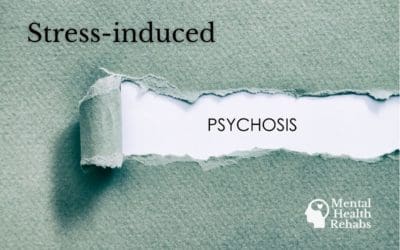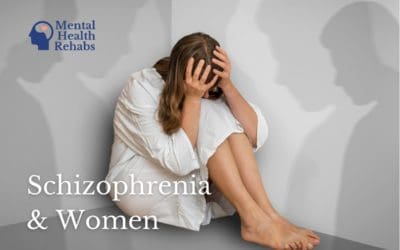Psychosis.

What is Psychosis?
Psychosis is a mental disorder characterized by a loss of contact with reality. It is a broad term that encompasses a variety of different symptoms, including delusions, hallucinations, disorganized speech, and disorganized behavior. The exact cause of psychosis is not known, but it is believed to be the result of a combination of biological, psychological, and social factors.
Criteria for Diagnosis
- Exposure to a traumatic event. This may include military combat, sexual assault, physical assault, natural disasters, accidents, or other life–threatening events.
- Presence of one or more of the following symptoms: intrusive thoughts or memories of the event, nightmares, extreme emotional distress or physical reactions to reminders of the event, avoidance of reminders of the event, persistent negative thoughts or feelings, difficulty concentrating, and irritability or outbursts of anger.
Symptoms Unique to Psychosis
The most common symptoms of psychosis are hallucinations, which are false perceptions of reality, and delusions, which are false beliefs. People with psychosis can also have disorganized speech, which is characterized by a lack of logical flow and a tendency to jump from one topic to another. They may also have disorganized behavior, which can include agitated movements, pacing, and unpredictable behavior.
Treating Psychosis
Psychosis is typically treated with medication and psychotherapy. Antipsychotic medications are typically used to reduce the severity of symptoms, while psychotherapy can help the person learn to cope with their symptoms. Cognitive-behavioral therapy (CBT) is a type of psychotherapy that can help people with psychosis learn to recognize and manage their symptoms.
In addition to medication and psychotherapy, other treatments for psychosis include lifestyle changes, such as getting adequate rest, exercising regularly, and eating a healthy diet. Support from family, friends, and mental health professionals can also be beneficial in helping a person with psychosis manage their symptoms.
In some cases, hospitalization may be necessary to ensure the safety of the person with psychosis and those around them. Hospitalization can also be beneficial in providing a more structured environment and allowing the person to access more intensive treatments than they would be able to access in an outpatient setting.
PTSD and Substance Abuse
Psychosis and substance abuse often occur together in individuals. Substance abuse can lead to an increased risk of developing psychosis and can make existing symptoms worse. People with substance abuse issues may experience delusions, paranoia, hallucinations, and other symptoms of psychosis. Additionally, substance abuse can interfere with the treatment of psychosis, making symptoms more difficult to control.
People with psychosis may also be more likely to engage in risky behaviors, including substance abuse, as a way to cope with their symptoms. This can create a vicious cycle, with substance use increasing the severity of psychotic symptoms and worsening the individual’s overall functioning.
In order to treat both psychosis and substance abuse, a comprehensive, integrated treatment plan is essential. This plan should include psychotherapy, medication, and lifestyle changes. Psychoeducation about both psychosis and substance abuse can be helpful in understanding the relationship between the two and learning to cope effectively. Additionally, support from family and friends can be invaluable in helping the individual manage both conditions.
Psychosis is a serious mental disorder that can have a significant impact on a person’s life, but with proper treatment and support, it is possible to manage the symptoms and lead a fulfilling life.
Sources
https://nami.org/About-Mental-Illness/Mental-Health-Conditions/Psychosis
Related Articles
How Can Stress Cause Psychosis?
What isn’t stress responsible for these days? From premature wrinkles and gray hair to sleep, digestion, and heart problems there’s no shortage of how this sneaky and silent killer causes harm to our bodies. However, the effects of stress aren’t just limited to the...
Can Meditation Have Negative Side Effects in People with Schizophrenia
Ask anyone to name a few benefits of meditation and they’re sure to rattle off a laundry list of merits like improved concentration and focus, better sleep quality, better sex, lower stress, and greater overall happiness. Medical studies also praise the practice for...
Are Schizophernia Symptoms Different in Females?
The way schizophrenia presents itself can vary--sometimes drastically--depending on whether the affected individual is a man or a woman. As such, schizophrenia symptoms in females tend to be different from those of their male counterparts. This in turn means there are...
Don’t Struggle Alone.
Get Help Today.
Reaching out for help for yourself or a loved one can be overwhelming and stressful, but it doesn’t have to be. If you are struggling to find the right help, or even know where to get started, please feel free to call our 24/7 helpline.
Begin your mental health journey right now!




